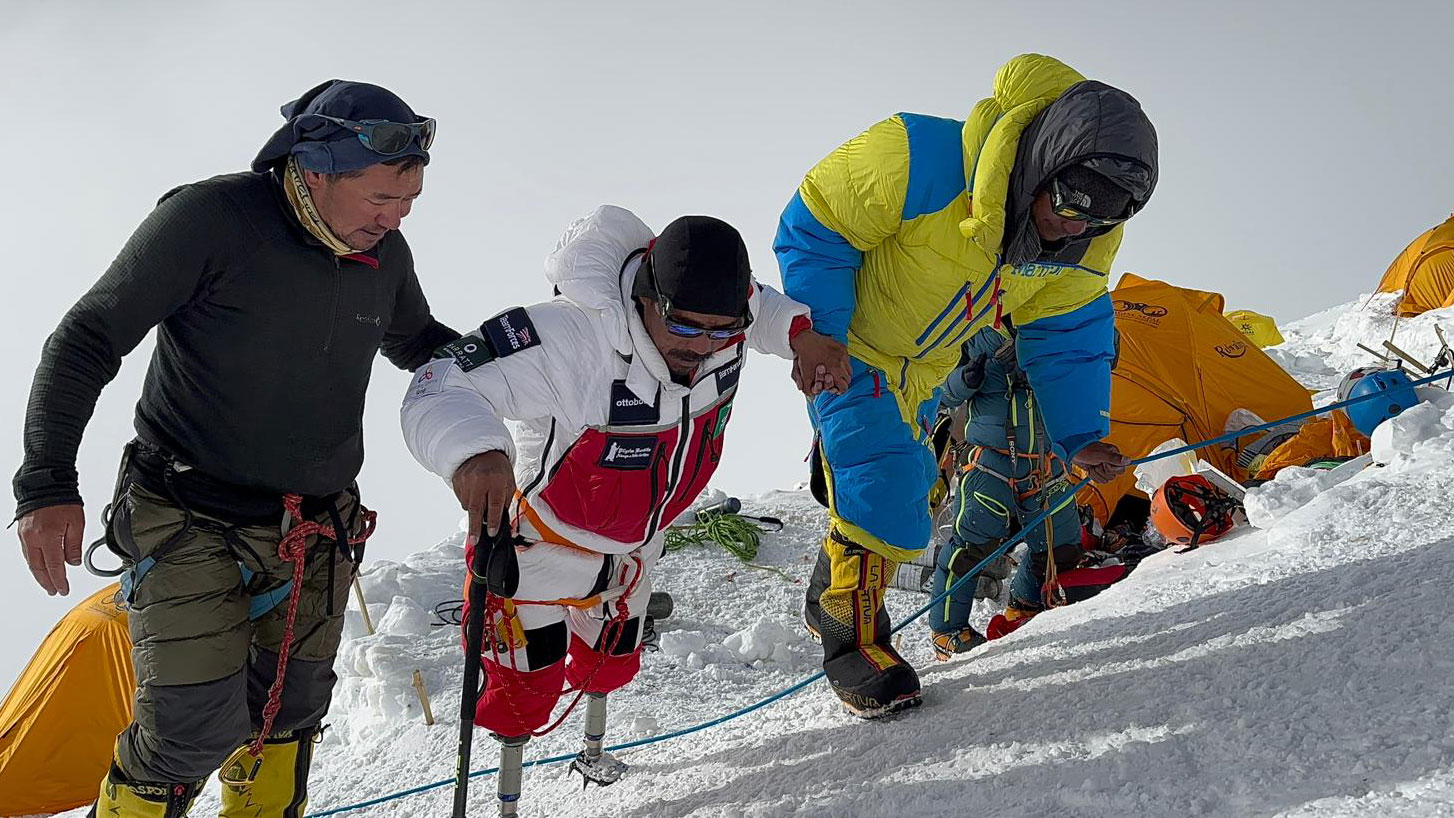Gurkha veteran who scaled Everest ready to inspire others to conquer own mountain
You would think after becoming the first double above-knee amputee to scale the world's highest peak, Mount Everest, Gurkha veteran Hari Budha Magar would be content.
But, the multi record-breaking climber wants to do more and take his message of "no legs, no limits" worldwide.
In May he announced that to spread his message globally, that a disability should not limit your ability to achieve your dreams, he will be attempting to climb the highest peak in all seven continents.
He has spoken to Forces News about his excitement and slight nerves ahead of his monumentous challenge.
"Hopefully the weather is fine. As long as the weather is good then I think we can be confident that we can pull it off," Hari said.
So far, Hari has climbed three of the peaks – Mont Blanc (4,810m) in August 2019, Mount Kilimanjaro (5,895m) in January 2020 and Mount Everest (8,849m) in May 2023.
This month he tackles North America's highest peak, Denali (6,190m), starting on 16 June, with the expedition expected to take three weeks.
To complete the challenge, Hari plans to then climb Puncak Jaya (4,884m) in Oceania, followed by Aconcagua (6,961m) in South America and finally finishing with Mount Vinson (4,892m) in Antarctica.
He hopes to complete all seven peaks by early 2026.
The Gurkha veteran hopes to grow the awareness of disability and "inspire others to climb their own mountain, whatever mountain that is".
Ahead of his fourth mountain, Hari has spoken of his concerns about potential "tricky" weather conditions.
With Denali being so close to the Arctic Circle, it is widely considered to be one of the coldest mountains on Earth.
"The weather is quite unpredictable. It could be quite tricky. Snow will be quite deep, which is my weakest point as well, as I don't have knees to lift my prosthetic legs."
Originally from Nepal, Hari served for 15 years in the British Army's Gurkha regiment, before losing both of his legs to an improvised explosive device in Afghanistan in 2010.
Speaking about how his military skills have continued to help him, Hari highlighted how his battle preparations keep him organised.
Hari noted the "military mindsets" among himself and his team. His experience helped him discover how far he can push himself and have the confidence to keep going.
"I'm hoping I can keep it going non-stop for 30 hours. It's amazing how much our body can bear the pain and everything. When we push our limits, our body is so adaptable."
He added: "The principle of war is momentum. As long as we keep going and don't stop and don't give up we will get up there."

After discovering sport and adventure, Hari highlights how "nothing is impossible" and that "there is just a different way to do things".
Hari wants to continue to raise awareness of the potential people with a disability still have, saying: "I wasted nearly two years of my time during my recovery not knowing what I can do.
"Whoever is going through that situation right now, or who will go through that in the future, we can do anything.
"As long as we have a positive attitude and the right mindset... anything is possible.
"My legs might be my weakness, but that doesn't mean I can't do anything. Everybody has weaknesses. Weaknesses we can improve on.
"Simply, as long as we can adapt, anything is possible."
To complete these upcoming challenges Hari is looking to raise additional sponsorship and funding. Donations can be made on his crowdfunding page here.









